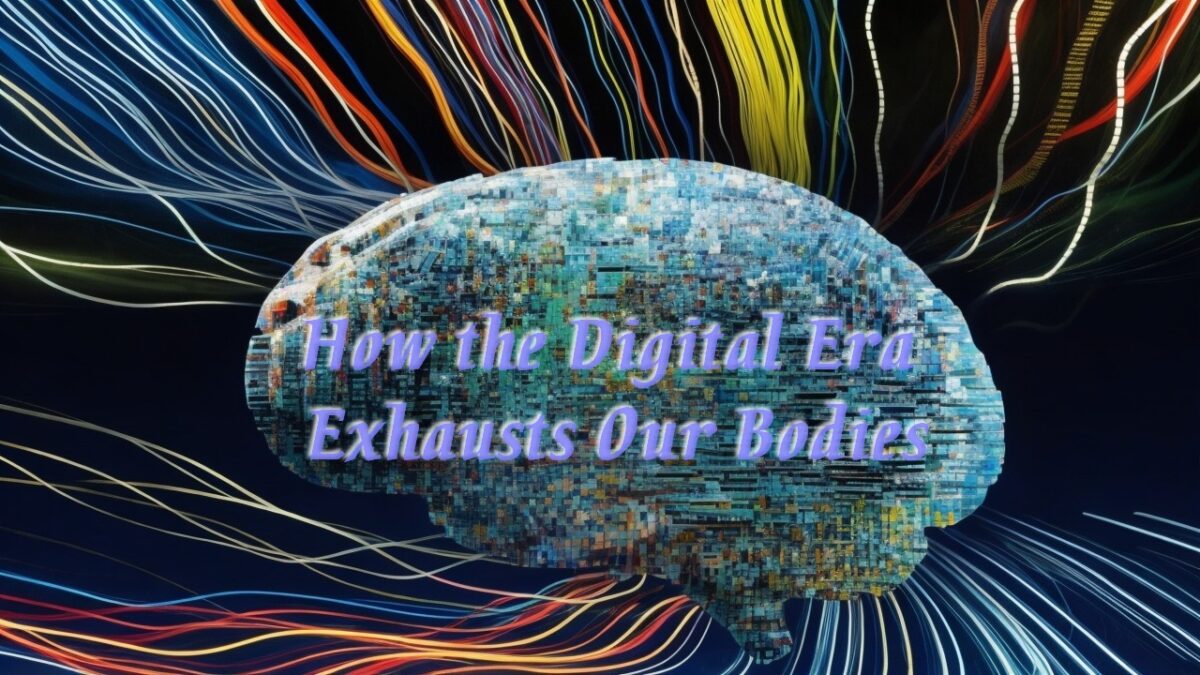In the fast-paced, interconnected world of the digital era, our bodies are under constant siege from the demands of modern technology. While the digital revolution has undoubtedly brought about numerous conveniences and advancements, it has also given rise to a range of physical and mental health challenges. In this article, we will explore how the digital era exhausts our bodies, delving into the various ways in which our reliance on screens, devices, and virtual environments takes a toll on our physical and mental well-being.
The Sedentary Lifestyle

One of the most prominent ways in which the digital era exhausts our bodies is by promoting a sedentary lifestyle. With the advent of smartphones, laptops, and streaming services, many of us spend hours each day hunched over screens. Prolonged sitting leads to a host of health issues, including obesity, cardiovascular problems, and musculoskeletal disorders, which, combined with the lack of Bvitamin, can carry the danger for the whole body. Additionally, excessive screen time can strain our eyes, leading to conditions like digital eye strain or computer vision syndrome.
Sleep Disruption

The blue light emitted by screens interferes with our circadian rhythms, making it difficult to fall asleep and stay asleep. This sleep disruption not only leaves us feeling fatigued but can also have long-term health consequences. Poor sleep has been linked to a higher risk of chronic diseases such as diabetes, heart disease, and obesity.
Mental Exhaustion

The digital era bombards us with a constant stream of information and notifications, leading to mental exhaustion. Multitasking, a common practice in the digital age, has been shown to reduce cognitive performance and increase stress levels. The constant need to stay connected and respond to messages and emails can lead to anxiety and burnout.
Digital Addiction
Smartphones and social media platforms are designed to be addictive, leading many people to spend an excessive amount of time online. This addiction can result in neglect of real-world relationships and responsibilities, further contributing to mental and emotional exhaustion. The fear of missing out (FOMO) and the pressure to curate a perfect online image can also take a toll on our self-esteem and mental well-being.
Posture Problems
Digital devices often force us into unnatural postures, such as hunching over a smartphone or sitting at a desk for extended periods. This can lead to poor posture, which in turn can cause back and neck pain. Over time, these posture problems can become chronic and debilitating.
Digital Overload

The digital era bombards us with an overwhelming amount of information, from news updates to social media feeds. Trying to keep up with it all can lead to cognitive overload, making it difficult to focus and think clearly. This constant information bombardment can also contribute to feelings of anxiety and stress.
Reduced Physical Activity
As digital entertainment and communication options have proliferated, physical activities have taken a back seat. People are spending more time indoors and less time engaging in physical activities like sports or outdoor adventures. This lack of physical activity can lead to a host of health problems, including obesity, weakened muscles, and reduced cardiovascular fitness.
Conclusion
While the digital era has undoubtedly revolutionized the way we live, work, and communicate, it also presents significant challenges to our physical and mental well-being. From the sedentary lifestyle it promotes to the mental exhaustion it can induce, the digital era is, in many ways, exhausting our bodies. Recognizing these challenges and taking proactive steps to mitigate their effects, such as setting screen time limits and prioritizing physical activity, is essential for maintaining a healthy and balanced life in the digital age. It’s crucial that we find a harmonious balance between the digital world and the physical world to ensure the well-being of our bodies and minds in this increasingly connected era.
